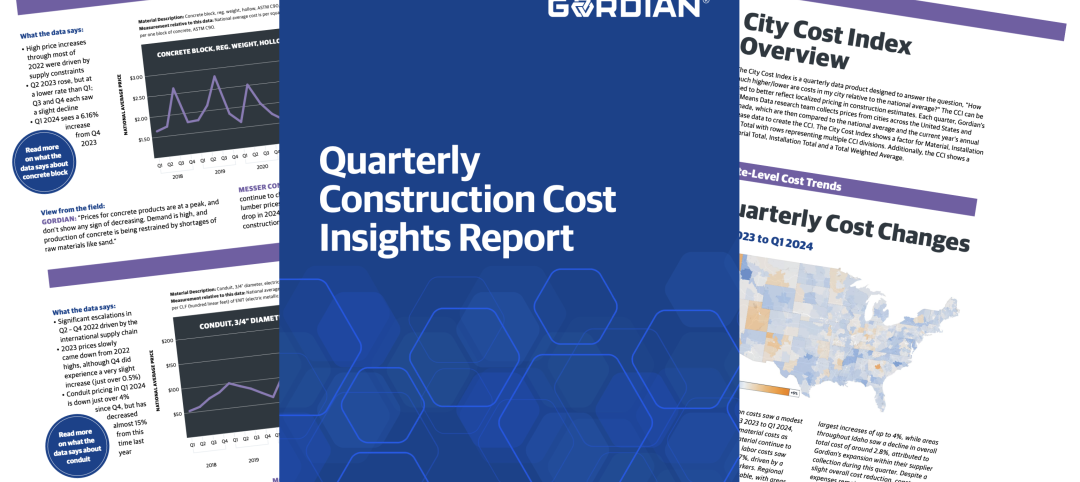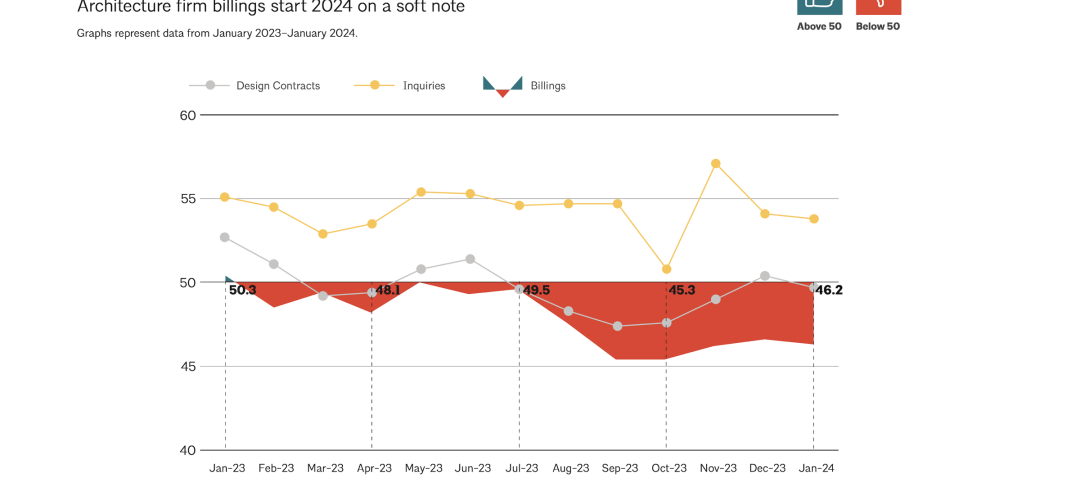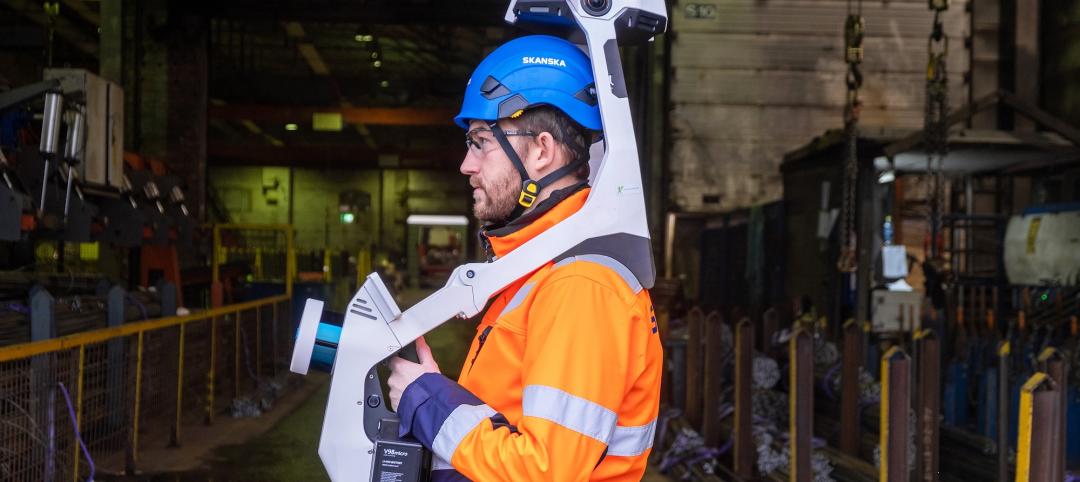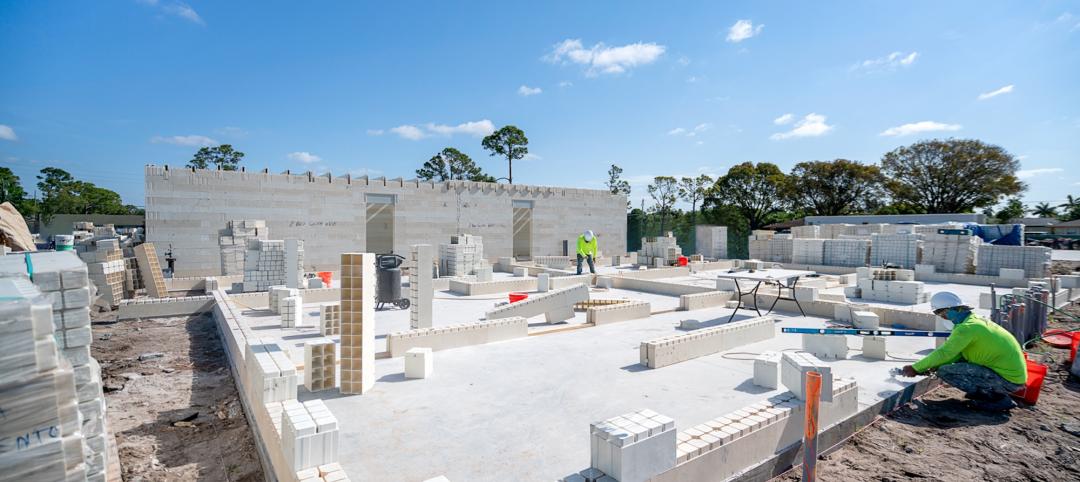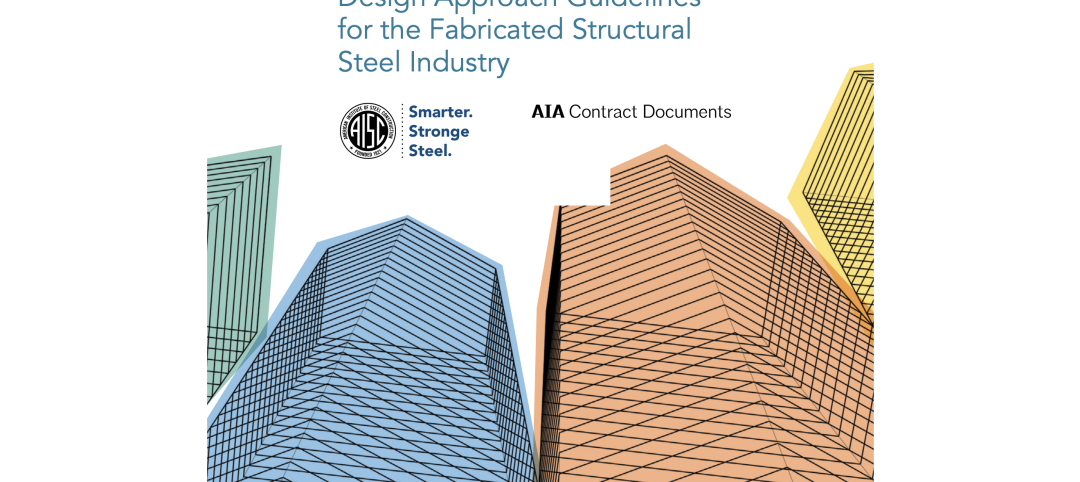The U.S. construction industry added 48,000 jobs in December, including 22,800 jobs in nonresidential construction, according to the Bureau of Labor Statistics (BLS) preliminary estimate released Jan. 9.
November's estimate was unchanged in this release, remaining at 20,000 net new construction jobs, but nonresidential construction's November jobs figure was upwardly revised to 7,100 jobs.
"The U.S. economy added an average of 289,000 jobs per month during the final three months of 2014, indicating that momentum is surging as we transition into 2015," said Associated Builders and Contractors Chief Economist Anirban Basu. "This represents good news for the construction industry in 2015 and perhaps beyond, particularly with respect to office construction, retail construction, and other segments that benefit directly from accelerating job growth and decreasing unemployment. Overall, the economy has built steady momentum since the end of last winter adding an average of 246,000 jobs per month in 2014, an increase of more than 50,000 jobs added per month compared to 2013."
According to the BLS household survey, the national unemployment rate fell to 5.6% in December. This represents the lowest level of unemployment since June 2008. The declining unemployment rate is most likely a result of a labor force that shrank by 273,000 persons in December, after expanding in the previous two months. The labor force participation rate fell by 0.02% and now sits at 62.7%.
"One of the most interesting aspects of the report is that construction unemployment ended the year at 8.3 percent on a non-seasonally adjusted basis," said Basu. "While construction firm executives have been worried for years about the specter of construction skills shortages, the BLS data indicate there are plenty of people looking for jobs in construction. It is likely that many of these prospective workers lack the skills necessary to fill the openings construction firms are seeking to fill or live in areas where construction employment growth is much slower.
"Normally, high construction unemployment would imply slow rates of wage and compensation increases; however, ABC believes this is not the case," added Basu. "Because of the presence of skills mismatches, wage gains are likely to be sizeable in 2015 even in the presence of lofty rates of construction unemployment."
Construction employment for the month and the past year breaks down as follows:
• Nonresidential building construction employment expanded by 10,000 for the month and is up by 23,400 jobs, or 3.4 percent, since December 2013.
• Residential building construction employment expanded by 800 jobs in December and is up by 44,500 jobs, or 7 percent, on an annual basis.
• Nonresidential specialty trade contractors added 12,800 jobs for the month and employment in that category is up by 76,900 jobs, or 3.7 percent, from the same time one year ago.
• Residential specialty trade contractors gained 12,700 jobs in December and have added 87,600 jobs, or 5.6 percent, since December 2013.
• The heavy and civil engineering construction segment gained 11,600 jobs in December and job totals are up by 57,900, or 6.6 percent, on a year-over-year basis.
To view the previous employment report, click here.
Related Stories
Construction Costs | Feb 27, 2024
Experts see construction material prices stabilizing in 2024
Gordian’s Q1 2024 Quarterly Construction Cost Insights Report brings good news: Although there are some materials whose prices have continued to show volatility, costs at a macro level are returning to a level of stability, suggesting predictable historical price escalation factors.
High-rise Construction | Feb 23, 2024
Designing a new frontier in Seattle’s urban core
Graphite Design Group shares the design for Frontier, a 540,000-sf tower in a five-block master plan for Seattle-based tech leader Amazon.
Construction Costs | Feb 22, 2024
K-12 school construction costs for 2024
Data from Gordian breaks down the average cost per square foot for four different types of K-12 school buildings (elementary schools, junior high schools, high schools, and vocational schools) across 10 U.S. cities.
MFPRO+ Special Reports | Feb 22, 2024
Crystal Lagoons: A deep dive into real estate's most extreme guest amenity
These year-round, manmade, crystal clear blue lagoons offer a groundbreaking technology with immense potential to redefine the concept of water amenities. However, navigating regulatory challenges and ensuring long-term sustainability are crucial to success with Crystal Lagoons.
Architects | Feb 21, 2024
Architecture Billings Index remains in 'declining billings' state in January 2024
Architecture firm billings remained soft entering into 2024, with an AIA/Deltek Architecture Billings Index (ABI) score of 46.2 in January. Any score below 50.0 indicates decreasing business conditions.
University Buildings | Feb 21, 2024
University design to help meet the demand for health professionals
Virginia Commonwealth University is a Page client, and the Dean of the College of Health Professions took time to talk about a pressing healthcare industry need that schools—and architects—can help address.
AEC Tech | Feb 20, 2024
AI for construction: What kind of tool can artificial intelligence become for AEC teams?
Avoiding the hype and gathering good data are half the battle toward making artificial intelligence tools useful for performing design, operational, and jobsite tasks.
Engineers | Feb 20, 2024
An engineering firm traces its DEI journey
Top-to-bottom buy-in has been a key factor in SSOE Group’s efforts to become more diverse, equitable, and inclusive in its hiring, mentoring, and benefits.
Building Tech | Feb 20, 2024
Construction method featuring LEGO-like bricks wins global innovation award
A new construction method featuring LEGO-like bricks made from a renewable composite material took first place for building innovations at the 2024 JEC Composites Innovation Awards in Paris, France.
Codes and Standards | Feb 20, 2024
AISC, AIA release second part of design assist guidelines for the structural steel industry
The American Institute of Steel Construction and AIA Contract Documents have released the second part of a document intended to provide guidance for three common collaboration strategies.



